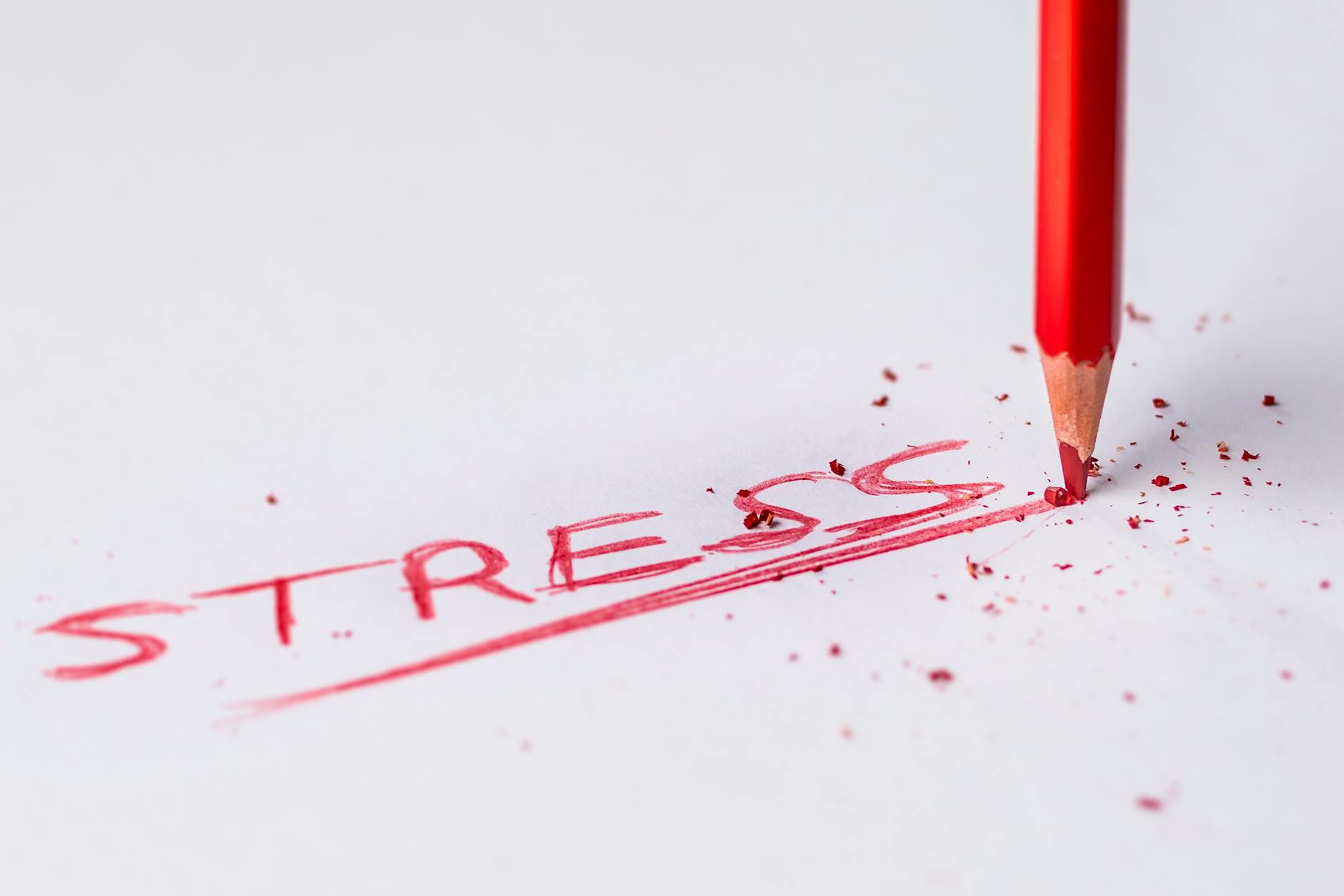
Let’s Talk About Stress—What Is It, Anyway?
Does it ever feel like the weight of the world is resting on your shoulders? Between work deadlines, relationship pressures, and everyday life, stress can sneak in and leave us feeling overwhelmed. But here’s the good news: It isn’t all bad, and there are effective ways to manage it.
Today, we’re diving into what it really is, how it affects your body and mind, and how you can blend modern psychology with Ayurvedic wisdom to reclaim your calm. Ready? Let’s jump in!
What’s the Deal with Stress?
Stress is your body’s natural response to challenges or demands. Think of it as a survival mechanism. When you face a perceived threat—like that big presentation coming up—your body goes into “fight or flight” mode. This is where those hormones like cortisol and adrenaline come into play, gearing you up for action.
You might notice your heart racing, your breathing quickening, or even a sudden burst of energy. This response was super useful when our ancestors had to flee from predators. But in today’s world, stress often comes from more mundane sources—like work deadlines, family obligations, or financial worries.
Stress can significantly impact both mind and body, often amplifying issues like anxiety and depression as worry and pressure accumulate. Persistent stress disrupts sleep, leading to insomnia and compounding daily fatigue, making it harder to function and cope. This constant tension can also trigger panic attacks, where overwhelming feelings take over unexpectedly. With time, stress can affect memory and concentration, resulting in frequent forgetfulness and difficulty focusing. Understanding these interconnected effects is essential for managing stress and finding healthier ways to cope.
The Good, the Bad, and the Stressful
So, not all stress is bad, right? Let’s break it down a bit:
Eustress: The Good Kind
Meet eustress—the kind of stress that gets you pumped! It motivates you to tackle challenges, helps you meet deadlines, and even enhances your performance. Think about that excitement you feel before a big event; that’s eustress in action! It feels energizing and keeps you on your toes.
Distress: The Not-So-Great Kind
On the flip side, we have distress. This is the negative stress that leaves you feeling overwhelmed and anxious. It can creep in when life gets chaotic, affecting everything from your mood to your immune system. Chronic distress is what we want to watch out for; it can lead to serious health issues if left unchecked.
Acute vs. Chronic Stress—What’s the Difference?
Let’s break this down a little more. Stress comes in two main flavors: acute and chronic.
Acute Stress : The Quick Jolt
Acute stress is short-term and usually linked to specific events. You might feel it when you’re stuck in traffic, preparing for a presentation, or dealing with a minor disagreement with a friend. Your body reacts quickly, and once the event passes, your stress levels typically return to normal. It’s intense but brief—often leaving you with a sense of relief when it’s over.
Chronic Stress : The Long Haul
Now, here’s where things can get dicey. Chronic stress sticks around for weeks, months, or even years. It can happen when you’re juggling work pressures, family obligations, and financial strain all at once. Unlike acute stress, chronic stress can be damaging to your health, leading to fatigue, anxiety, and even serious medical issues over time.
If you find yourself constantly feeling overwhelmed or anxious, it’s essential to address those stressors head-on.

What Causes Stress?
So, what’s causing all this stress in your life? This can come from both external and internal factors.
External Triggers
- Work Pressures: Deadlines, job insecurity, and workplace dynamics can create a lot of worry.
- Relationship Issues: Conflicts with friends or family can weigh heavily on your mind.
- Financial Worries: Money matters can be a significant source of stress for many people.
Internal Triggers
- Negative Self-Talk: Sometimes, the harshest critic can be yourself. Perfectionism and negative thinking patterns can amplify stress levels.
- Unrealistic Expectations: Setting the bar too high for yourself can lead to feelings of inadequacy and stressing about it.
Recognizing what triggers, recognising your stressors is the first step to managing it effectively.


The Lazarus Stress Model: How We Cope
Now, let’s dive into the Lazarus Stress Model, which provides insight into how we perceive and respond to stressors. According to psychologist Richard Lazarus, stress arises not just from the stressor itself but also from how we interpret that stressor.
Primary Appraisal: Is It a Threat?
When faced with a stressor, we first assess whether it’s a threat. We ask ourselves, “Is this a challenge, a threat, or a loss?”
Secondary Appraisal: Can I Handle It?
Next, we evaluate our resources and options for coping. This is where we decide if we have the tools to manage the situation. If we feel equipped, we approach the stressor confidently. If not, stress levels can rise.
Problem-Focused vs. Emotion-Focused Coping
So, how do we cope with this? This is where problem-focused and emotion-focused coping come into play.
Problem-Focused Coping: Tackling the Issue
Problem-focused coping involves addressing the stressor directly. This could mean organizing your tasks, setting boundaries, or seeking solutions. If you’re feeling overwhelmed by work, for instance, problem-focused coping might involve creating a to-do list or talking to your manager about your workload. The goal here is to actively tackle the root cause of your stress.
Emotion-Focused Coping: Managing the Feelings
On the other hand, emotion-focused coping is about managing your emotional response to the stressor. This might involve activities like mindfulness, talking to a friend, or engaging in hobbies to distract yourself from the stressful thoughts. While it doesn’t solve the underlying problem, it helps you navigate your feelings and provides some immediate relief.
Both coping strategies are essential, and the best approach often depends on the situation at hand.
How Ayurveda Sees Stress: Mano Dushti and Buddhi Duct
In Ayurveda, stress is viewed through a different lens. It’s seen as an imbalance in the mind and intellect, specifically through the concepts of Mano Dushti (mind disturbance) and Buddhi Dushti (intellect disturbance).
What Is Mano Dushti?
Mano Dushti refers to disturbances in the mind, often caused by excessive worries, negative thoughts, or overwhelming emotions. When this balance is disrupted, it can lead to anxiety, and difficulty in focusing.
What About Buddhi Dushti?
Buddhi Dushti relates to disturbances in intellect or reasoning. When your ability to think clearly is compromised, it can lead to poor decision-making, confusion, and increased stress levels.
In Ayurveda, restoring balance is key to managing stress. This often involves lifestyle adjustments, dietary changes, and natural remedies.
Practical Solutions to Tackle Stress: Modern Techniques and Ayurvedic Wisdom
Cognitive Behavioral Therapy (CBT)
Let’s start with some modern approaches. Cognitive Behavioral Therapy (CBT) is a popular technique used to manage stress and anxiety. It involves identifying negative thought patterns and replacing them with more positive, realistic ones. Here are a few techniques to consider:
- Thought Records: Keep a journal of your thoughts to identify patterns and triggers.
- Behavioral Experiments: Test out new ways of thinking by trying different behaviors and seeing how they affect your stress levels.
- Mindfulness and Meditation: Incorporate mindfulness practices to help center your thoughts and calm your mind.
Ayurvedic Lifestyle Changes
Now, let’s weave in some Ayurvedic techniques for stress management:

1. Herbs for Calm
Ayurveda offers a range of herbs known for their calming effects. Consider incorporating these into your daily routine:
- Ashwagandha: This adaptogen helps reduce stress and anxiety.
- Brahmi: Known for enhancing memory and concentration, Brahmi can also calm an overactive mind.
- Jatamansi: This herb helps calm the nervous system and is beneficial for stress relief.
2. Dietary Adjustments
What you eat can significantly impact your stress levels. Here are some Ayurvedic dietary tips to keep in mind:
- Warm Milk with Turmeric: A soothing drink before bed can promote relaxation and help you sleep better.
- Sattvic Foods: Focus on fresh, light foods that are easy to digest—think fruits, vegetables, and whole grains. They help calm the mind and promote well-being.
- Herbal Teas: Chamomile and peppermint teas are fantastic for soothing the nerves.
3. Lifestyle Changes
Finally, some simple lifestyle changes can make a world of difference:
- Regular Exercise: Physical activity releases endorphins, helping to reduce stress.
- Adequate Sleep: Prioritize good sleep hygiene for better stress management.
- Mindfulness Practices: Incorporate mindfulness and meditation into your routine to center your thoughts and relax your mind.
Mindfulness and Meditation: Finding Your Calm
Incorporating mindfulness and meditation into your daily routine can be a game changer. These practices help ground you in the present moment and reduce stress.
Stress Coping Techniques
Here are some coping techniques you can try:
- Breathing Exercises: Practice deep breathing to calm your mind and body.
- Gratitude Journaling: Write down things you’re grateful for to shift your focus from overwhelming thoughts to clarity.
- Nature Walks: Spending time outdoors can be incredibly rejuvenating and help lower stress levels.
Stress can significantly impact both mind and body, often amplifying issues like anxiety and depression as worry and pressure accumulate. When its persistent disrupts sleep, leading to insomnia and compounding daily fatigue, making it harder to function and cope. This constant tension can also trigger panic attacks, where overwhelming feelings take over unexpectedly. With time, It can affect memory and concentration, resulting in frequent forgetfulness and difficulty focusing. Understanding these interconnected effects is essential for managing stress and finding healthier ways to cope.

You’ve Got This!
Stress is a natural part of life, but with the right tools and techniques, you can manage it effectively. By blending modern psychological strategies with Ayurvedic wisdom, you can create a personalized approach that works for you.
Remember, it’s okay to seek help if it ever feels overwhelming. Whether through therapy, herbal remedies, or lifestyle changes, you don’t have to face it all alone. You’ve got this!
Follow us on Instagram for daily dose of inspiration and info on self healing and subscribe to our Youtube Channel to keep up with in detailed information explained step by step. Thank you for sticking around.





